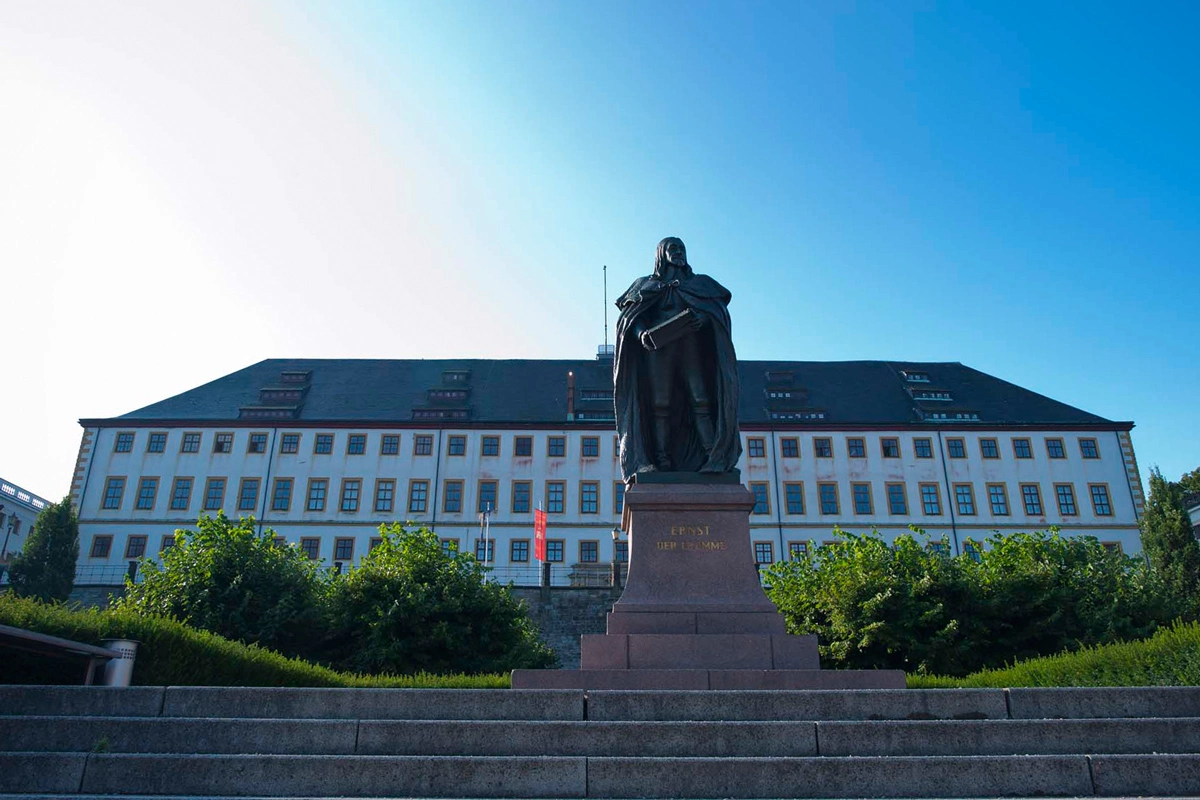The course thus continues a StuFu seminar from the summer semester, in which the first foundations for the research work within the cooperation project "Cultural Techniques of Collecting (Erfurt – Gotha)" were laid.
"The practical background is a photo collection of the Friedenstein Foundation Gotha, which has hardly been catalogued to date and contains a large number of photographs of various celebrations from around 120 years of the city's history," explains Dr Jana Mangold, who is coordinating the project at the University of Erfurt. "In the coming semester, we now want to analyse these photos with the help of interviews with Gotha citizens and ask them about their memories: How did they experience these celebrations? Did they have a feeling of freedom or were they more a representation of power? The aim of the project is therefore to use the festival to start a dialogue about the meaning of freedom and to reflect on the variability of perceptions and experiences of freedom in different political systems (especially during the SED dictatorship and in the period after reunification)."
The partners involved in the project "broke down open doors" for the senior citizens of Gotha with the idea. Jana Mangold recalls: "We quickly made contact with a very active group of senior citizens via the Gotha Seniors' Advisory Council, who were immediately on board. And the Gotha Seniors' Academy also helped us a lot in finding people to talk to." The fact that the senior citizens have a lot to report and that the students and academics can draw on a huge treasure trove of memories was already evident last semester. "We showed the group a photo of the Kelly Family performing on Gotha's market square in the early 1990s. The Kellys weren't even in the photo, but the senior citizens immediately remembered it and knew an incredible amount about it. I found that impressive," says Jana Mangold and states: "In conversations like this, we also gain valuable insights into the transformation experiences that people have had. We can learn a lot from that."
And what will the project look like in practice in the winter semester? "One of our research assistants, Nadine Fechner, has analysed the photos from the Friedenstein Foundation and is preparing them accordingly so that we can then use them to talk to the contemporary witnesses. The interviews, which often last up to three hours, are recorded and then edited. In the seminar, we naturally accompany every step of the practical work," explains the project coordinator. In addition, the contributions will be channelled into a new audio archive at the Friedenstein Foundation, where they will be preserved for posterity. Short excerpts from the results of the work will then be included in an exhibition that will be shown in 2025 as part of the celebrations to mark the 1250th anniversary of the City of Gotha.
A so-called win-win situation, especially as the students will also be introduced to the world of oral history – in other words, narrated history. "We are working closely with Professor Christiane Kuller and Dr Agnès Arp from the Oral History Research Unit at the Department of History at the University of Erfurt, who are actively supporting us," says Dr Jana Mangold. "Agnès Arp immediately offered to organise an introductory event for the students, which will not only teach them about the methods of participatory research, but also prepare them in a very practical way for the subsequent interviews."
Anyone who is now curious and would like to take part in the StuFu seminar should be quick and get in touch with Dr Jana Mangold. Because the University of Erfurt starts the new winter semester on 14 October.


